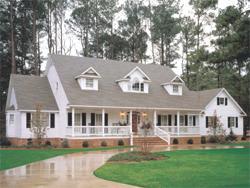Lower Millennial Home Ownership Rates Impact Larger Economy
New York, NY, July 29, 2019-Many adults have been priced out of the housing market, and that will have reverberations in the economy for years to come, says the Wall Street Journal in “Financial Crisis Yields a Generation of Renters” by Christina Rexrode.
“For generations, the wealth of U.S. households was built on the foundation of homeownership. That is changing.
“Homeownership rates for younger Americans have fallen sharply over the last decade. The median age of a home buyer is 46, the oldest since the National Association of Realtors began keeping records in 1981. Economists, policy makers and mortgage lenders expect the trend to extend to younger generations. The decline illustrates what for many Americans is the real legacy of the financial crisis.
“People who came of age in the crisis and its immediate aftermath had no bargaining power when they entered the job market, crimping their earnings ever since. They started adulthood when the housing market was crashing and watched as banks foreclosed on their parents-and decided they weren’t interested in tying their fortunes to a piece of property.
“Now, as memories of the crisis fade, they want to buy homes but are finding themselves priced out of the market. Home prices have risen across the board but most steeply among the starter homes first-time buyers can afford, as developers focus on high-end properties where profit margins are higher. The average price of lower-priced homes rose by 64% from early 2012 to late 2018, according to mortgage-data tracker CoreLogic , while the price of higher-end homes rose just 40%.
“The effects are already reverberating through the economy. More adults in their 20s and 30s are living with their parents, according to census data, which could make them unwilling or unable to move cities for better jobs. The possibility of rent increases could make them less willing to spend, which some economists believe has already contributed to the economy’s slow postcrisis growth. Some young adults said their inability to buy a home had made them rethink having children, which could exacerbate the challenges created by America’s aging population.
“‘Lower homeownership for young adults means lower economic growth,’ said Sam Khater, chief economist of mortgage-finance giant Freddie Mac. ‘That’s it in a nutshell.’
“Homeownership rates for young people are near their lowest levels in more than three decades of record-keeping. About 40% of young adults, ages 25 to 34, were homeowners in 2018, according to federal data analyzed by Freddie Mac. That is down from about 48% in 2001, when Gen X-ers were young adults. Some economists calculate the decline is actually even steeper.
“The crux of the problem: Home prices have outpaced wage gains. From roughly the end of 2000 to the end of 2017, median home prices rose 21% after adjusting for inflation, while median household income rose 2%, according to federal and industry data analyzed by Freddie Mac.
“Some of the drop in homeownership is a matter of preference. The financial crisis made today’s young adults averse to debt and risk, lenders say. That means they might be willing to spend on daily luxuries but not to tie up the bulk of their money in a mortgage.
“Millennials aren’t making up for lost home equity in other investments. The median net worth for young families plunged by nearly a third from 2001 to 2016 after adjusting for inflation, according to the Federal Reserve.
“Even if millennials soon start buying homes en masse, as some banks and mortgage lenders predict, there are consequences to buying late. A recent report by the Urban Institute examined homeowners who turned 60 or 61 between 2003 and 2015. Those who bought their first home between ages 25 and 34 had median housing wealth of about $149,000. Those who waited until ages 35 to 44 had half that.
“The effects of not buying, or buying late, should become more clear as millennials enter new stages of life. The median family net worth of homeowners is more than $230,000, according to the Fed, compared with $5,000 for renters.
“Without home equity, people are less able to weather job losses or unexpected medical expenses, and less able to start small businesses. Baby boomers could find that when they want to downsize, there are fewer buyers because younger adults never built up equity in a first home. And decades from now, millennials might have to keep working well into retirement age.”
